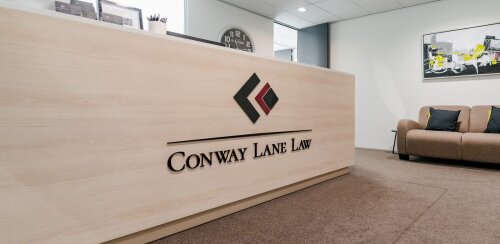Best Employment Rights Lawyers in Rangiora
Share your needs with us, get contacted by law firms.
Free. Takes 2 min.
List of the best lawyers in Rangiora, New Zealand
1. About Employment Rights Law in Rangiora, New Zealand
Rangiora residents are protected by New Zealand's national employment framework. The core rights and obligations apply across Canterbury, including Rangiora businesses and workplaces. The framework balances employer needs with employee protections through established statutes and tribunal processes.
The Employment Relations Act 2000 is the central law regulating employment relationships, including personal grievances, collective bargaining, and the process for resolving workplace disputes. The Holidays Act 2003 covers annual leave, public holidays, and holiday pay rules. The Health and Safety at Work Act 2015 governs workplace safety and employer duties to provide a safe working environment. These laws together shape day to day rights for Rangiora workers and obligations for local employers.
Key official resources provide practical guidance for employees and employers in Rangiora. For up to date information, consult Employment NZ and the NZ Legislation site to view the exact provisions of each Act. These sources help residents understand rights in wage disputes, dismissals, and safety obligations in local Rangiora workplaces.
“The Employment Relations Act 2000 governs the terms of employment relationships, including personal grievances and disputes.”
Source: Employment New Zealand and Legislation NZ provide authoritative explanations of these laws and dispute resolution processes. See employment.govt.nz and legislation.govt.nz.
2. Why You May Need a Lawyer
In Rangiora, complex employment issues often benefit from early legal counsel to protect rights and navigate the local workplace landscape. A lawyer can interpret the specific rights under NZ law and help plan practical steps for resolution.
- Unjustified dismissal at a Rangiora retailer. A store manager may not dismiss you without a valid reason or proper procedure under the ERA. A lawyer can assess the grounds, process, and potential remedies such as reinstatement or compensation.
- Seasonal wage disputes with a local agribusiness or dairy contractor. Seasonal workers in Canterbury may face unpaid wages or improper holiday pay. A solicitor can quantify owed amounts and pursue a remedy through appropriate processes.
- Discrimination or harassment at a Rangiora hospitality venue. Issues based on sex, age, race, or disability fall under the Human Rights Act and ERA protections. A lawyer can assess claims and advise on remedies and settlements.
- Reduction in hours or changes to shift patterns without proper notice. Employers must follow procedural fairness; counsel can determine whether the changes breach employment rights and what steps to take next.
- Redundancy with inadequate notice or severance. Redundancy entitlements and consultation duties are governed by NZ law. A lawyer can review your agreement and negotiate terms if needed.
- Health and safety concerns at a Rangiora workplace. If you face unsafe conditions or retaliation for reporting hazards, counsel can help you pursue remedies under the Health and Safety at Work Act 2015.
Engaging a local employment rights solicitor or solicitor with Canterbury experience helps ensure your rights are understood in the Rangiora context and improves the likelihood of a fair outcome. Early legal advice can also clarify whether to pursue mediation, a formal personal grievance, or a tribunal path.
3. Local Laws Overview
The following laws shape employment rights in Rangiora and Canterbury, with notes on how they apply locally and any known recent updates.
- Employment Relations Act 2000 - The framework for employer-employee relationships, personal grievances, and collective bargaining. The Act provides for processes such as mediation, the Employment Relations Authority, and the Employment Court for disputes. It applies to most private sector workers in Rangiora and across New Zealand. For the text and updates, see legislation.govt.nz.
- Holidays Act 2003 - Sets rules for annual leave, public holidays, and holiday pay. The Act impacts how Rangiora employers calculate and pay holiday entitlements. Updates and guidance are available through Employment NZ.
- Health and Safety at Work Act 2015 - Imposes duties on employers to provide a safe workplace and to manage hazards. This Act affects all Rangiora workplaces, including small businesses and rural employers common in Canterbury. Resources and compliance guidance are available from WorkSafe New Zealand.
- Minimum Wage Act 1983 - Establishes the minimum wage levels and the framework for wage compliance. Rates are updated annually with announcements from the government; see Employment NZ or MBIE for current rates and dates of effect.
Recent trends include annual updates to minimum wage rates effective on 1 April each year and ongoing efforts to clarify holiday pay calculations under the Holidays Act. For current rates and exact dates, consult official sources such as Employment NZ and MBIE.
“Minimum wage rates are reviewed annually and take effect on 1 April each year.”
Source: Employment NZ and MBIE pages provide the latest rate announcements and guidance. See employment.govt.nz and mbie.govt.nz.
4. Frequently Asked Questions
What is the Employment Relations Act 2000 in simple terms?
The ERA 2000 sets out the rights and duties of employees and employers, how disputes are handled, and how agreements are made. It also governs personal grievances and collective bargaining.
How do I file a personal grievance in Rangiora?
Begin by documenting the issue and contacting your employer to seek a resolution. If unresolved, file a formal personal grievance with the appropriate authority, such as the Employment Relations Authority, following the steps outlined on Employment NZ.
What is the timeline to lodge a personal grievance?
Timelines vary by issue, but most personal grievances must be started within 90 days of the event, with potential extensions in some circumstances. Check the latest guidance from Employment NZ for your situation.
How much does it cost to hire an employment rights lawyer in Rangiora?
Costs vary by case complexity and lawyer experience. Some provide initial consultations at no charge. Ask for a written estimate and alternative fee arrangements before proceeding.
Do I need a lawyer for a small wage dispute?
A lawyer is not mandatory, but legal advice can help you claim all owed wages and avoid mistakes. For simple cases, you may use Employment NZ resources or legal aid if you qualify.
What is the difference between an employee and a contractor under NZ law?
Employees have statutory rights such as minimum wage, annual leave, and protection from unjust dismissal. Contractors have more independence and may not receive the same protections, depending on their contract and working arrangements.
Can I be dismissed while on parental leave?
Dismissal during parental leave is not automatically allowed. If you believe you were treated unlawfully, you may have a personal grievance and remedies under the ERA and Human Rights Act.
Should I accept a settlement offer from my employer?
Consider whether the offer fairly resolves all issues and entitlements. A lawyer can review the terms and advise on whether to accept or negotiate further.
Do I need a union to pursue my rights?
Union representation is not required to pursue rights, but unions can provide support for collective bargaining and disputes. A lawyer can still assist you with individual claims.
Is the Holidays Act applicable to casual workers?
Casual workers have entitlements under the Holidays Act, but the specific calculation and eligibility can depend on hours worked and agreement with the employer. Seek guidance for your situation.
How long does a typical wage dispute take to resolve?
Resolution times vary by case type and process chosen. Mediation can be quicker, while formal hearings may take longer. Your lawyer can outline realistic timelines based on your facts.
Where can I find free or low-cost legal help in Rangiora?
NZ government and community services offer free or subsidised options, including Legal Aid for eligible clients. Local advice may also be available via Citizen Advice Bureau and regional legal aid resources.
5. Additional Resources
These official resources provide direct access to guidance, forms, and services related to Employment Rights in New Zealand.
- Employment New Zealand - Official government portal with information on rights, responsibilities, and dispute resolution under NZ employment law. employment.govt.nz
- Ministry of Business, Innovation and Employment (MBIE) - Oversees wage setting, minimum wage updates, and safety standards. mbie.govt.nz
- WorkSafe New Zealand - Governs health and safety at work and employer duties. worksafe.govt.nz
Additional authoritative bodies include the Human Rights Commission for discrimination and civil rights inquiries and the Employment Court for tribunal proceedings if matters progress beyond mediation.
6. Next Steps
- Inventory your documents and evidence. Collect pay slips, contracts, emails, and any correspondence with your employer. Do this within 7 days to preserve details.
- Identify potential Employment Rights lawyers in Rangiora or the Canterbury region. Search for practitioners with relevant experience and read client notes or testimonials.
- Arrange initial consultations with 2 or 3 solicitors. Ask about experience with ERA disputes, redress options, and likely timelines. Schedule within two weeks.
- Prepare a concise case summary for your consultations. Include dates, key events, and your desired outcome. Bring physical copies to meetings.
- Ask about costs, fee structures, and funding options such as legal aid. Obtain a written estimate and a cap on fees before agreeing to representation.
- Decide on a strategy with your chosen solicitor. Outline mediation, bargaining, or tribunal options and set clear milestones for progress. Aim to start within 2-4 weeks after choosing counsel.
- Engage the lawyer and sign a formal retainer. Confirm deadlines, communication expectations, and the anticipated path to resolution. Keep all receipts and correspondence.
Lawzana helps you find the best lawyers and law firms in Rangiora through a curated and pre-screened list of qualified legal professionals. Our platform offers rankings and detailed profiles of attorneys and law firms, allowing you to compare based on practice areas, including Employment Rights, experience, and client feedback.
Each profile includes a description of the firm's areas of practice, client reviews, team members and partners, year of establishment, spoken languages, office locations, contact information, social media presence, and any published articles or resources. Most firms on our platform speak English and are experienced in both local and international legal matters.
Get a quote from top-rated law firms in Rangiora, New Zealand — quickly, securely, and without unnecessary hassle.
Disclaimer:
The information provided on this page is for general informational purposes only and does not constitute legal advice. While we strive to ensure the accuracy and relevance of the content, legal information may change over time, and interpretations of the law can vary. You should always consult with a qualified legal professional for advice specific to your situation.
We disclaim all liability for actions taken or not taken based on the content of this page. If you believe any information is incorrect or outdated, please contact us, and we will review and update it where appropriate.









